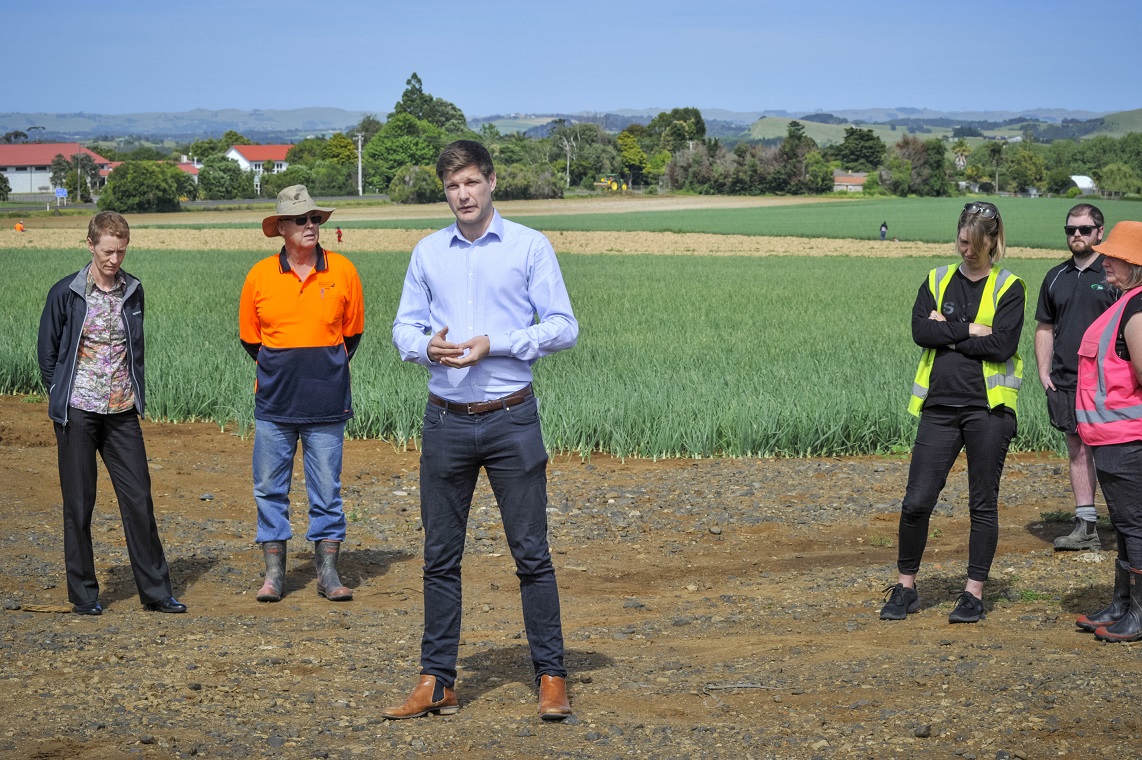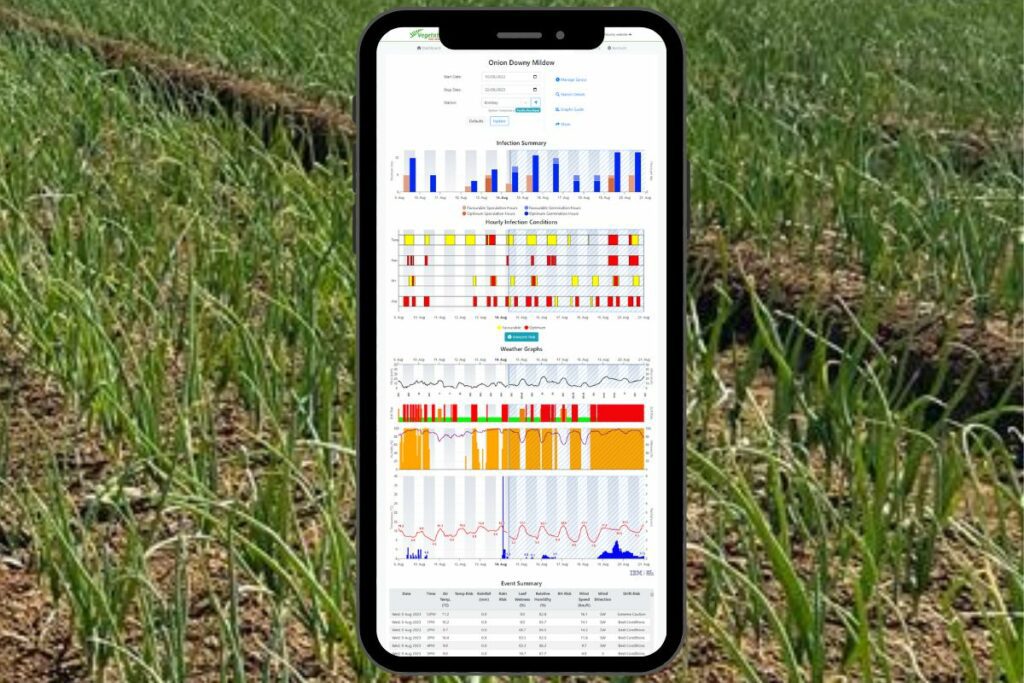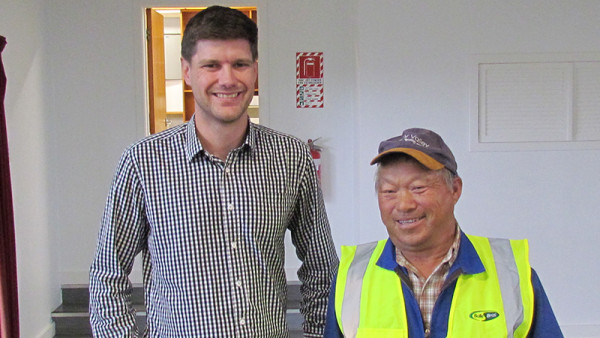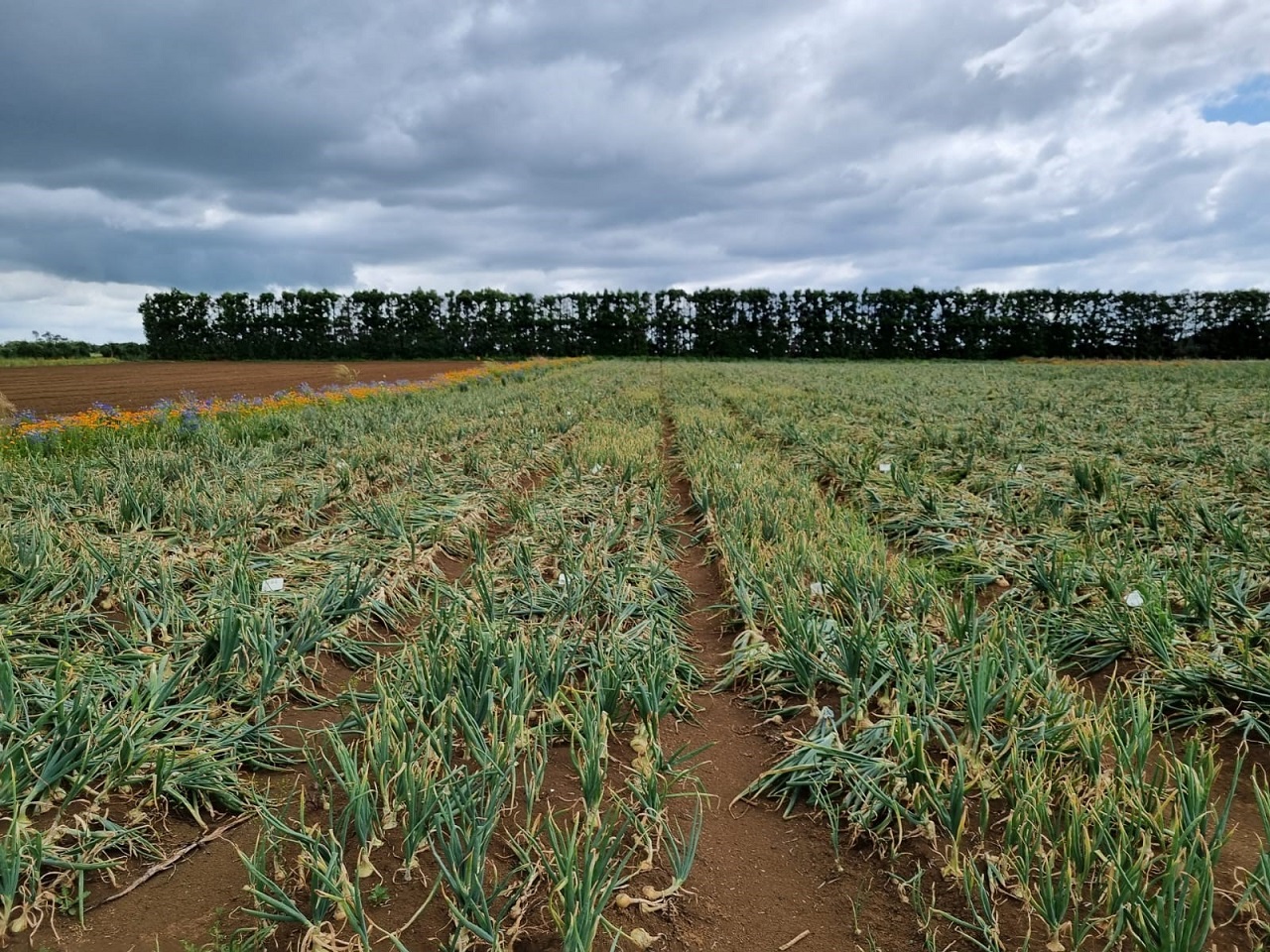A Lighter Touch (ALT) partner Onions New Zealand sees the ALT programme as playing a key role in helping manage a “burning issue” for New Zealand growers, that of resistance management.
Resistance to crop protection products can develop from the repeated exposure of plant pests, diseases or weeds to the products applied to control them. Generally, the more applications made of a mode of action group, the higher the risk of resistance developing.
This particularly occurs for some of the modern crop protection products where the mode of action is quite specific within the target organism. The risk of resistance developing is increasing as older, broad-spectrum groups are removed and greater reliance is placed on the newer, narrow target groups.
Onions New Zealand chief executive James Kuperus says resistance management is a vital issue across plant-based sectors, particularly in areas of high cropping intensity such as Pukekohe. Group 3 and 7 fungicides are two crop protection chemistries at high risk of resistance, because of their mode of action, being a single-site fungicide. Finding alternatives to these fungicides is a particular area of focus for A Lighter Touch.
“In order to manage resistance, we need a variety of crop protection products which can be used to protect and prolong the effective life of existing products. The work A Lighter Touch is doing in supporting the registration of new crop protection products, along with identifying ways to improve the regulatory pathway, is a key area where the programme will make a difference.”

Onions NZ chief executive James Kuperus speaking at a field day.
A Lighter Touch has also been funding and facilitating the update of the resistance management strategies which are specific to both crop protection products and individual crops. These strategies will play a key role in helping maintain the effectiveness of chemistries at risk of resistance while work goes on to find and develop new crop protection options for growers.
One of the reasons Onions New Zealand chose to invest in the A Lighter Touch programme was to identify and incorporate more softer chemistry products in their crop protection programme.
“We are seeing internationally and domestically the continued trend for reduced reliance on certain types of agrichemicals, which are being phased out of use. As an export orientated crop, we need to meet the requirements of not only the New Zealand market, but also our export partners.
“This dramatically reduces the number of products available to our growers for management of pests, diseases and weeds. We’re keen to find new tools for growers through the A Lighter Touch programme.”
ALT aims to broaden the grower’s toolbox by reviewing the entire production system to see where an agroecological approach can be applied. In addition to new chemistry, this includes biological solutions, changes to farming practices and the use of technology.
One such tool used by onion growers is the weather and disease modelling technology, MetWatch. An ALT-Onions New Zealand project updated this tool to support decision-making around the use of fungicides for control of Downy mildew, as part of work focused on integrated pest management.

The MetWatch Downy mildew model on screen.
MetWatch has proved integral in management of onion crops at the ALT Pukekohe demonstration farm, where results have shown it is possible to grow a successful onion crop in New Zealand by ensuring crop protection applications are accurately targeted and without relying on the use of mancozeb.
Mancozeb is a product that the European market is looking to phase out. Being a broad-spectrum fungicide this will place pressure on alternative products that growers may use for disease control in onions. As more pressure is placed on the remaining products in the programme, a more judicious fungicide product selection process is required, hence the renewed focus on the MetWatch decision support tool.
One of the ways ALT validates the commercial practicality of new tools and knowledge is through the use of demonstration sites, and Onions New Zealand with the support of Balle Brothers stood up the programme’s demonstration farm in Pukekohe. The farm’s use has now expanded to support the involvement of Vegetables New Zealand and the Foundation for Arable Research.

Onions New Zealand chief executive James Kuperus (left) with Balle Brothers Crop Manager Howe Young, who manages the Pukekohe demonstration farm. Credit NZ Grower.
James says Onions New Zealand is by its nature eager to collaborate and work with other plant-based industries.
“As a producer of an export commodity, we work closely with the likes of NZ Apples and Pears. But in terms of our growing rotation, we also work alongside other crop groups such as Vegetables New Zealand and Potatoes New Zealand.
He values the collaborative nature of the A Lighter Touch programme in encouraging sectors to work together.
“It is easy to say we should collaborate, but harder to do. A Lighter Touch provides the impetus and structure to collaborate as a sector, and that is what will drive the enduring outcomes we’re looking for in terms of a more agroecological approach to crop protection.”
